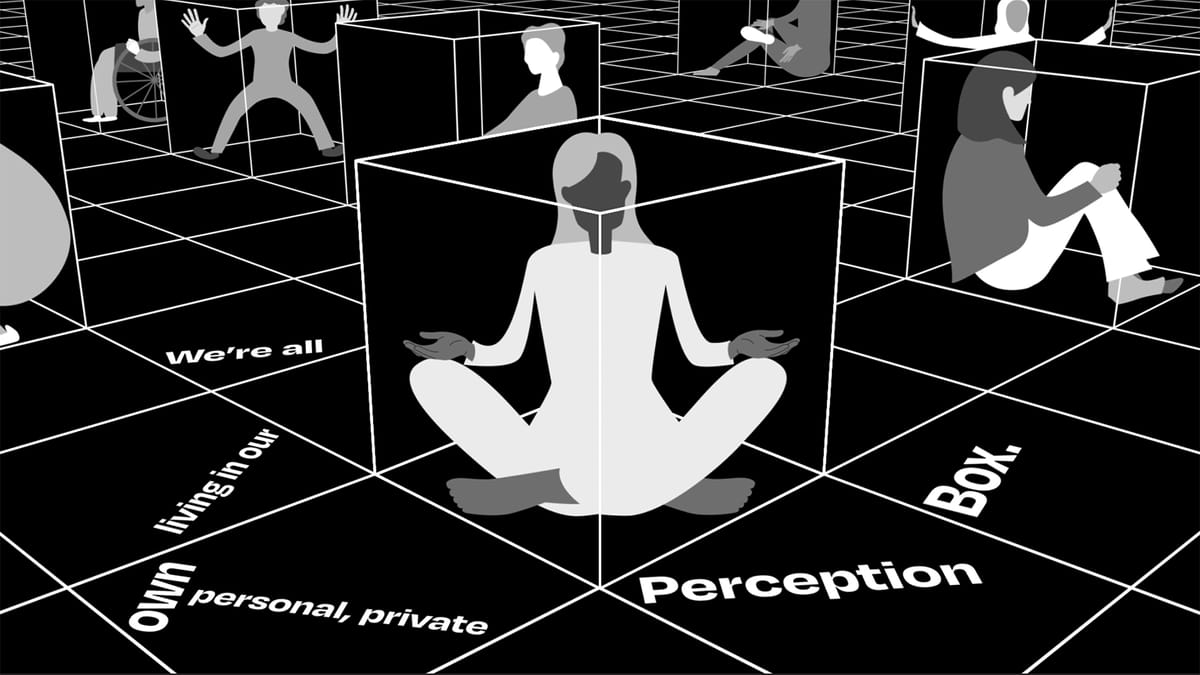Introducing the Perception Box

What is the Perception Box? It’s a metaphor for our subjective experience of reality. The box includes our thoughts, experiences, and dreams. It helps us understand how our beliefs, biases, and narratives shape our perception. We each live in our own Perception Box, which colors our experiences.
The term “Perception Box” was coined by visionary writer Elizabeth Koch. This concept has the potential to advance consciousness studies. While we’ve made progress in understanding the brain, we’ve struggled to grasp the mental aspects—those that can’t be easily measured. This is where the Perception Box comes in. Koch is collaborating with leading thinkers like Christof Koch (not related), Giulio Tononi, Kristen Lindquist, Heather Berlin, and Lisa Feldman Barrett and many more to explore this idea further.
Who is the perceiver of the Perception Box? We all do. No matter how enlightened you might be, your experience is shaped by this box. It’s the “I am,” the first-person subjective experience. We are the witnesses, observers, and controllers of our perception. We label this consciousness. Our free will lies in how we manage our Perception Box.
Why is this model important? Distinguishing between the tangible brain and the intangible Perception Box can deepen our understanding of consciousness. It also aligns with insights from ancient Eastern traditions, which emphasize the importance of inward exploration. In essence, the Perception Box is a metaphor for our conditioned experiences. An expanded box represents openness and growth, while a contracted box signifies self-inflicted suffering and negative thought loops.
Why it matters:
•Expanding Self-Awareness: The Perception Box encourages introspection, helping us become more aware of our mental processes and the stories we tell ourselves. This self-awareness is critical to understanding consciousness.
• Interdisciplinary Approach: Koch’s foundation promotes the integration of science, philosophy, and personal experience, bridging gaps between different fields in the study of consciousness.
• Emotional and Cognitive Flexibility: Questioning our Perception Box opens us to new experiences and perspectives, fostering cognitive and emotional growth.
• Practical Applications: Understanding the Perception Box can enhance mental health and well-being, making abstract concepts tangible.
• Conscious Evolution: By stepping beyond our Perception Boxes, we can evolve our consciousness, suggesting it is not static but can be developed through intentional practice and insight.
Closing thought: Elizabeth Koch’s Perception Box offers a profound lens through which to view the world. It’s like wearing glasses that filter our view based on our beliefs, biases, and experiences. By recognizing this, we can transcend our limitations, open ourselves to new perspectives, and deepen our understanding of consciousness.
Going Deeper:
To Learn more about the Perception Box






